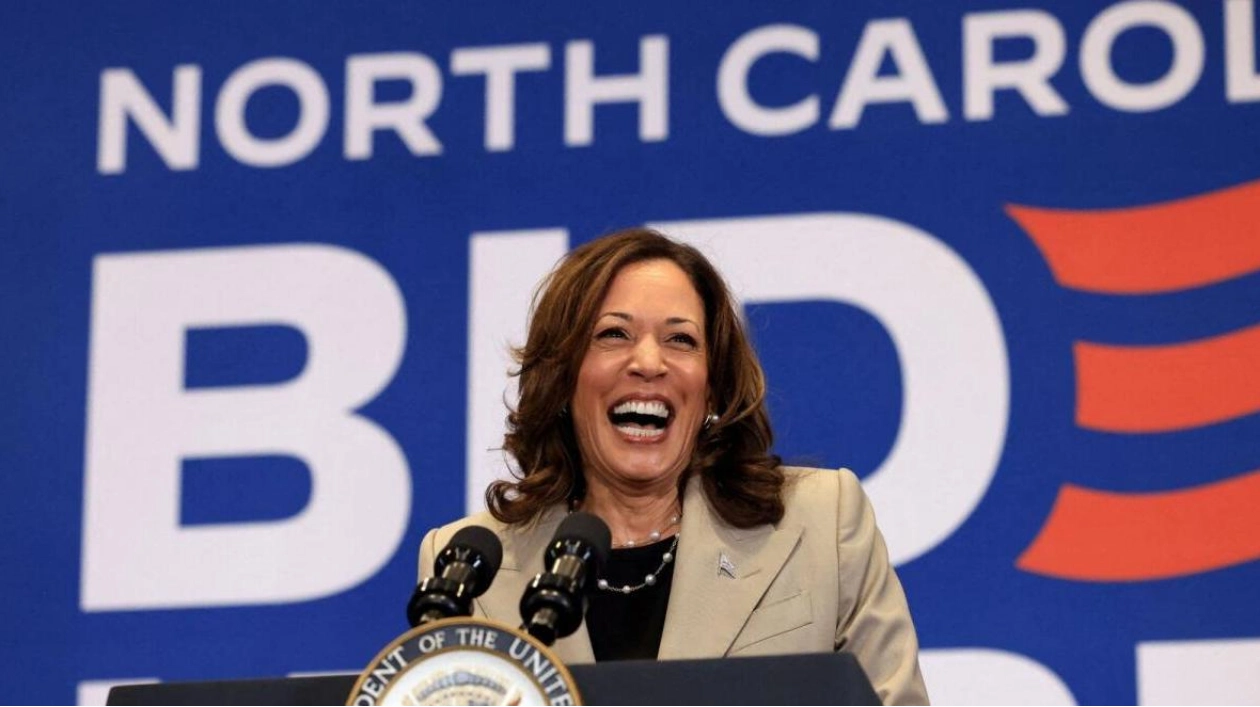The Democratic party is poised to make a significant and potentially risky move by considering Vice-President Kamala Harris as their presidential nominee, hoping that her identity as a Black woman can help her overcome both systemic biases and personal political missteps to defeat Republican Donald Trump. In the over two centuries of American democracy, only one Black president has been elected, and never a woman, which raises doubts among some Black voters about Harris's ability to break through this political glass ceiling.
"Will her race and gender be an issue? Absolutely," said LaTosha Brown, a political strategist and co-founder of the Black Lives Matter Fund. If Harris were to be nominated, she would face significant challenges, including a short three-month campaign period to rally the party and donors behind her. Despite these hurdles, many Democrats are optimistic about her potential.
Concerns have been voiced by around three dozen Democratic lawmakers about President Joe Biden's, 81, ability to win and serve another term due to his age and perceived lack of stamina. There is a fear that Trump and the Republicans could not only reclaim the White House but also control both houses of Congress. Biden has reiterated his intention to continue campaigning after recovering from Covid-19, with Harris actively supporting his re-election.
At 59, Harris is two decades younger than Trump and a prominent figure in the Democratic party on issues like abortion rights, which are crucial to younger voters and the party's progressive base. Proponents believe she could energize these groups, solidify Black support, and effectively argue against Trump's policies. Her candidacy would starkly contrast with Trump and his running mate, Senator J.D. Vance, both white men, according to Brown.
However, despite recent praise for her defense of Biden, some Democrats remain wary of Harris's initial years in office, her brief 2020 campaign, and the historical weight of racial and gender discrimination in the U.S. Polls show a close race between Harris and Trump, with each having 44% support in a recent Reuters/Ipsos poll. Harris's approval ratings, though low, slightly exceed Biden's.
Representative Alexandra Ocasio-Cortez noted on Instagram that there is no consensus among those wanting Biden to step down who would support Harris, highlighting the lack of a safe option. Harris, as the first woman and first Black and South Asian vice-president, has faced unfair attacks related to her race and gender but is seen as prepared for further challenges.
Jamal Simmons, a former Harris aide, believes that while racism and sexism will influence her campaign, her race and gender could also galvanize Black voters and women, including those who regret not supporting Clinton in 2016. Harris benefits from higher name recognition compared to other potential Democratic candidates.
A former Democratic lawmaker, speaking anonymously, sees Harris as a risk due to her political record rather than her race. Her early tenure as vice-president was marked by staff turnover and limited progress on key issues. Trump has used racist and sexist language against Harris, further complicating her path.
Despite these challenges, Harris's advocacy for reproductive rights has strengthened her standing in the party. Biden credits her with helping to prevent a Republican sweep in the midterm elections, and she has actively campaigned on abortion rights. Her potential candidacy could also leverage Biden's strong support among Black voters.
Black women, including Donna Brazile, have expressed support for a Biden-Harris ticket, despite internal party divisions. However, if the party rallies around Harris, she could face blame from voters who feel misled about Biden's capabilities. Gina Gannon, a retiree in Georgia, expressed frustration with the Democrats for concealing Biden's condition, implicating Harris in the perceived deception.






